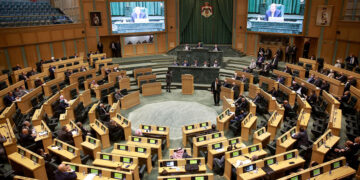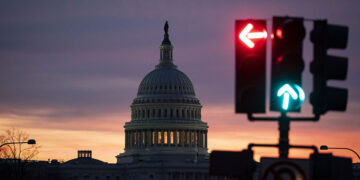Briefing Paper Examines Context and Results of Elections Amid Widespread Political Repression and Persecution
(Washington D.C, April 15, 2025) – Dismal voter participation in Jordan's 2024 parliamentary election and the Islamic Action Front's dramatic electoral gains are a product of King Abdullah's expanding political repression, leaving citizens with few options for political representation and a parliament with virtually no power, concluded DAWN in a new briefing paper released today.
The organization offered several recommendations to the Jordanian parliament, King Abdullah II's government, and the U.S. government to address the erosion of parliamentary oversight and weak political participation in the country, including reforming the Election Law and abolishing the Cybercrime and Crime Prevention laws that the King has used to quash the human rights of Jordanians.
"The shockingly low turnout for the country's parliamentary elections reveals growing dissatisfaction among Jordanians with the King's autocratic rule," said Jamal Al Tahat, Senior Advisor at DAWN. "The King's broken promises of reform and dismissive attitude toward state institutions, including parliament, have produced the predictable result of Jordanian citizens walking away from their pretend elected government."
The briefing paper analyzes the political and legal context that resulted in a historically low 32% voter turnout, a dramatic protest vote in blank ballots, the exclusion of wide swaths of voters from the voting rolls, and astonishing electoral gains for the Islamic Action Front, the political party affiliated with the country's Muslim Brotherhood organization, which garnered 28% of the vote, capturing 42% of parliamentary seats. In the year leading up to the election, authorities used oppressive laws to detain hundreds of activists, banned 25 political parties, and removed 727,000 Jordanians from the voter rolls. The election outcome suggests that the majority of Jordanians refrained from voting or casting their ballots in protest, signaling discontent with the government, and shrinking the popular base of the regime to less than a quarter of the society.
"King Abdullah II has deliberately orchestrated a political environment that stifles independent political parties and leaves Jordanians with few options other than the Islamic Action Front, so that the King can then turn around and warn his Western backers that it's either his dictatorial rule or the Islamists," said Sarah Leah Whitson, DAWN's executive director. "Knee-capping political parties while treating members of parliament as window-dressing without even the power of a rubber stamp, King Abdullah II has worked hard to ensure that Jordanians never enjoy democracy."
The briefing paper also analyzes King Abdullah II's long record of eroding parliament's legislative and oversight powers over the government, replete with regular dissolutions and suspensions of parliament, electoral and political parties laws that limit the ability of voters to choose their representatives, and the creation of monarchical-controlled bodies with extensive financial and political control outside parliamentary control or review. King Abdullah II's inaugural speech to the newly elected parliament encapsulates his increasingly dismissive approach towards and disdain for parliament, and the lack of accountability for the government and other executive state institutions.
The briefing paper concludes with specific recommendations: urging the Jordanians to participate in elections, vote, and form political parties; calling on Parliament to exercise stronger oversight over implementation of the political parties law; advising King Abdullah II to cease treating independent political parties as adversaries and to suspend, amend or revoke the laws hampering democratic participation and freedom of speech and association; and encouraging the U.S. government—Jordan's primary military and financial sponsor—to take note of the growing resentment among Jordanians that risks instability and political upheaval in the country and to cease support for its increasingly abusive government.





































